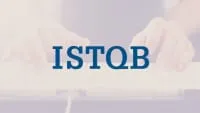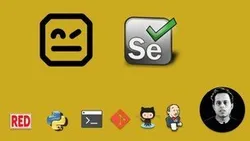
Karate Automation Testing Short Course for Beginners 
This short course provides an introduction to Karate, a popular open-source framework for API automation testing. Through demonstrations and examples, beginners will gain a comprehensive understanding of the fundamentals of Karate. ▼
ADVERTISEMENT
Course Feature
![]() Cost:
Cost:
Free
![]() Provider:
Provider:
Udemy
![]() Certificate:
Certificate:
No Information
![]() Language:
Language:
English
Course Overview
❗The content presented here is sourced directly from Udemy platform. For comprehensive course details, including enrollment information, simply click on the 'Go to class' link on our website.
Updated in [March 06th, 2023]
This Karate Automation Testing Short Course for Beginners is designed to provide a comprehensive introduction to the fundamentals of karate automation testing. It is designed to help beginners understand the basics of karate automation testing and how to apply it to their projects.
The course begins with an overview of the fundamentals and features of karate automation testing. It then moves on to discuss the structure of a karate project and how to apply the karate DSL to projects. The course also covers topics such as how to create and run tests, how to debug and troubleshoot tests, and how to use the karate framework to create and maintain test suites.
The course also covers topics such as how to use the karate framework to create and maintain test suites, how to use the karate framework to create and maintain test suites, and how to use the karate framework to create and maintain test suites.
At the end of the course, students will have a comprehensive understanding of the fundamentals of karate automation testing and how to apply it to their projects. They will also have the skills and knowledge to create and maintain test suites, debug and troubleshoot tests, and use the karate framework to create and maintain test suites.
This course is ideal for those who are new to karate automation testing and want to learn the basics. It is also suitable for those who are already familiar with the fundamentals of karate automation testing and want to learn more about how to apply it to their projects.
[Applications]
After completing this course, participants can apply the knowledge they have gained to their own projects. They can use the Karate DSL to create automated tests for their projects, as well as understand the fundamentals and features of Karate. Additionally, they can use the Karate Project Overview and Structure to create a project that is well-structured and organized.
[Career Paths]
1. Automation Test Engineer: Automation Test Engineers are responsible for designing, developing, and executing automated tests to ensure the quality of software applications. They use various tools and techniques to create automated tests that can be used to detect and fix software defects. Automation Test Engineers must have a strong understanding of software development and testing processes, as well as experience with scripting languages and automation tools. As automation testing becomes more popular, the demand for Automation Test Engineers is expected to increase.
2. Software Quality Assurance Engineer: Software Quality Assurance Engineers are responsible for ensuring the quality of software applications. They use various tools and techniques to test software applications for defects and performance issues. Software Quality Assurance Engineers must have a strong understanding of software development and testing processes, as well as experience with scripting languages and automation tools. As software quality assurance becomes more important, the demand for Software Quality Assurance Engineers is expected to increase.
3. Software Developer: Software Developers are responsible for designing, developing, and maintaining software applications. They use various tools and techniques to create software applications that meet customer requirements. Software Developers must have a strong understanding of software development processes, as well as experience with programming languages and development tools. As software development becomes more complex, the demand for Software Developers is expected to increase.
4. DevOps Engineer: DevOps Engineers are responsible for automating and streamlining software development and deployment processes. They use various tools and techniques to create automated processes that can be used to quickly and efficiently deploy software applications. DevOps Engineers must have a strong understanding of software development and deployment processes, as well as experience with scripting languages and automation tools. As DevOps becomes more popular, the demand for DevOps Engineers is expected to increase.
[Education Paths]
1. Bachelor of Science in Computer Science: This degree path provides students with a comprehensive understanding of computer science, including programming, software engineering, and computer systems. Students will learn the fundamentals of computer science, as well as the latest trends in the field, such as artificial intelligence, machine learning, and data science.
2. Bachelor of Science in Software Engineering: This degree path focuses on the development of software applications and systems. Students will learn the fundamentals of software engineering, including software design, development, and testing. They will also gain an understanding of the latest technologies and trends in the field, such as cloud computing, mobile development, and web development.
3. Master of Science in Computer Science: This degree path provides students with an advanced understanding of computer science, including programming, software engineering, and computer systems. Students will learn the fundamentals of computer science, as well as the latest trends in the field, such as artificial intelligence, machine learning, and data science.
4. Master of Science in Software Engineering: This degree path focuses on the development of software applications and systems. Students will learn the fundamentals of software engineering, including software design, development, and testing. They will also gain an understanding of the latest technologies and trends in the field, such as cloud computing, mobile development, and automation testing.
Course Syllabus
Prerequisite and Setup
Karate Project Setup
Pros & Cons

Excelente curso para dar los primeros pasos en Karate Framework

Un tutorial completo y explicado de una manera sencilla

Good, short and sweet

Nice explained

A nice, simple yet detailed course

A pesar de ser un curso introductorio y gratuito
Course Provider

Provider Udemy's Stats at AZClass
Discussion and Reviews
0.0 (Based on 0 reviews)
Explore Similar Online Courses

Build Your Own Super Computer with Raspberry Pis

Marketing in a Digital World

Python for Informatics: Exploring Information

Social Network Analysis

Introduction to Systematic Review and Meta-Analysis

The Analytics Edge

DCO042 - Python For Informatics

Causal Diagrams: Draw Your Assumptions Before Your Conclusions

Whole genome sequencing of bacterial genomes - tools and applications

Boost Your Game Performance in Unity 3D

ISTQB Certified Tester Foundation Level Training (CTFL)

Robot Framework RIDE & Selenium - Step by Step for Beginners
 Related Categories
Related Categories
 Popular Searches
Popular Searches
Quiz
 Submitted Sucessfully
Submitted Sucessfully
1. What is the main purpose of this course?
2. What is the best way to learn Karate DSL?
3. What is the main focus of this course?
4. What is Karate DSL?
Correct Answer: It is a Domain Specific Language for testing.


Start your review of Karate Automation Testing Short Course for Beginners